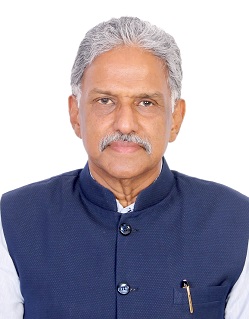A Profession Under Threat: Advocating for the Safety of Healthcare Workers
In the wake of the recent tragic rape and murder of a resident doctor in Kolkata, the medical community is engulfed in profound grief and outrage. This horrific incident not only underscores the daily dangers healthcare professionals face but also highlights the urgent need for protective measures to ensure their safety. In just a few days following this atrocity, there have been reports of the molestation of a nurse and a house surgeon in different parts of the country. The medical profession has yet to recover from the untimely death of Dr. Archana Sharma, a 42-year-old gynaecologist in Rajasthan, who also lost her life as a result of harassment in 2022, and of Dr. Vandana Das, a 23-year-old house surgeon in Kerala who was stabbed to death by an undertrial patient. After each of these incidents, many promises were made, especially to ensure the security of women colleagues, but on the ground, not much has changed.

As our nation continues to grapple with the aftermath of the COVID-19 pandemic, during which thousands of our colleagues sacrificed their lives while serving on the front lines, it is crucial that we reassess our commitment to safeguarding those who dedicate their lives to saving others. The pandemic thrust healthcare workers into the spotlight, showcasing their dedication and resilience as they fought to save lives amid overwhelming challenges. Many healthcare professionals faced not only the physical toll of long hours and emotional strain but also the threat of violence in their workplaces.
Recognizing the need for the safety of healthcare workers during the COVID crisis, the government passed a law to protect health workers. Unfortunately, this law was withdrawn as soon as the crisis abated.
Reports of violence against doctors and hospital staff have risen alarmingly, with healthcare professionals becoming targets for frustrated patients and, in some instances, antisocial elements who exploit vulnerable situations. In response to this escalating crisis, the Indian Medical Association (IMA), the Association of Healthcare Providers India (AHPI), and other organizations have voiced their concerns, releasing guidelines and recommendations to ensure the safety of healthcare workers. The publication of "Perils in Practice: The Prevention of Violence Against Healthcare Professionals" by AHPI and IMA aimed to address these issues. Additionally, a national summit on violence against healthcare workers was convened by IMA and AHPI, attended by many experts, including policymakers. During this summit, we collectively expressed our concerns and shared insights on the pervasive issue of violence in healthcare settings. Unfortunately, our requests have not yielded any tangible or effective response thus far.
While some state governments have enacted laws to protect healthcare professionals, a central law is urgently needed to safeguard healthcare workers nationwide. This law should designate hospitals as safe zones. The emotional states of patients entering hospitals can often lead to volatile situations, and unfortunately, healthcare workers frequently bear the brunt of the anger and frustration directed at them.
This situation requires immediate intervention and reform, realizing that this is not merely a localized issue, but one that affects the entire country.
Moreover, the conditions under which many resident doctors and interns work are hardly sustainable. In many hospitals, these young professionals endure grueling shifts of 24 to 36 hours, leading to significant physical and mental stress. According to a recent report by the National Medical Council, a staggering one-third of postgraduate medical students are experiencing mental health issues, with some even contemplating suicide due to the overwhelming pressures of their profession. This issue must be addressed urgently.
The loss of bright, young minds to other fields is a growing concern, as many are choosing to leave a career in medicine for the sake of their safety and well-being.
Our profession stands at a crossroads. The repeated requests from the medical community for protective measures have gone largely unanswered, leaving our colleagues vulnerable in environments that should prioritize their safety. The entire medical fraternity is united in its plea—a desperate cry for help to policymakers and the public to recognize the difficulties we face - and to take action to protect those who dedicate their lives to ensuring the health and well[1]being of others.
To deliver quality healthcare, we must first protect the health and safety of those who provide it. We call on the government, healthcare institutions, and society at large to take our concerns seriously.
It is time to come together to implement policies that prioritize the safety of healthcare workers, ensuring that they can continue to serve the public without the looming threat of violence or harm. As we mourn the loss of our colleague, let it serve as a catalyst for change. Let us remember that the safety of healthcare professionals is synonymous with the safety of patients. Let us work collectively to foster an environment where healthcare workers can perform their vital roles safely, allowing them to focus on their calling—caring for the sick and saving lives.
